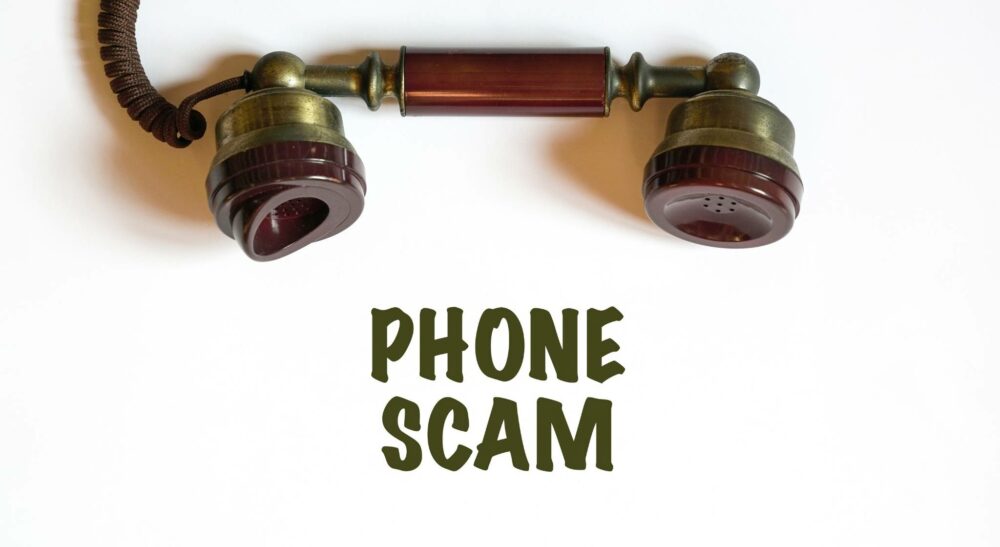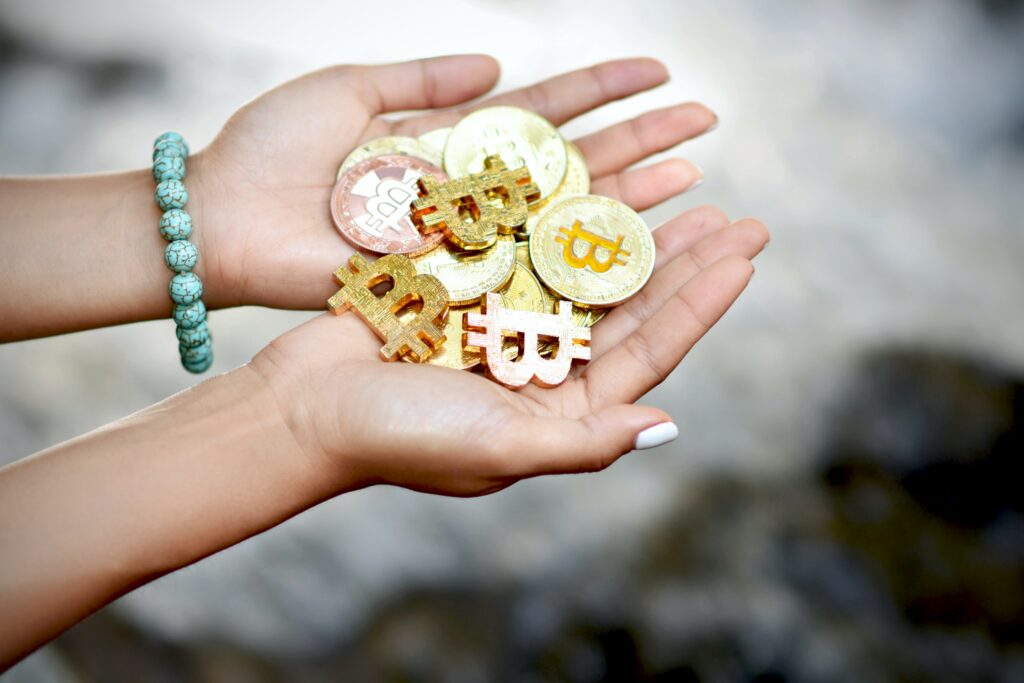Do Cryptocurrency Scams and Dating Frauds Go Hand in Hand?
Excerpt: People are misled into transferring money to criminals who go to great lengths to gain their trust and convince them that they are in a genuine relationship in romance scams. They employ language to influence, persuade, and abuse people, so that money solicitations do not raise red flags. Criminals may make emotional pleas, such as stating they need money for emergency medical care or to pay for transportation charges to visit the victim if they are abroad. Scammers frequently develop a rapport with their victims over time.
Introduction
Con artists preying on individuals looking for love is nothing new, but the most recent scams have evolved from asking you to purchase gift cards to various crypto schemes. A cryptocurrency is a type of digital currency that can be used to buy and sell products and services.
Many retail investors and institutions, on the other hand, treat cryptos as investments rather than means of exchange, purchasing certain coins to sell them for a profit at a later date. However, investors should exercise caution before investing in these commonly misunderstood assets. People are misled into transferring money to criminals who go to great lengths to gain their trust and convince them that they are in a genuine relationship in romance scams. They employ language to influence, persuade, and abuse people, so that money solicitations do not raise red flags. Criminals may make emotional pleas, such as stating they need money for emergency medical care or to pay for transportation charges to visit the victim if they are abroad. Scammers frequently develop a rapport with their victims over time.
“Tinder Swindler,” a popular Netflix show, did not include any crypto frauds. But its charismatic leader, Simon Leviev, could easily make a living as a crypto dating con artist – all it takes is a little trust-building, some promises of rich crypto earnings, and gullibility, which many of us are prone to.

Latest News & Scam Alerts




The Latest 411 on Current Day Cell Phone Scam

Smishing: A Whole New Level of Scams & Frauds
Scammers took home a record $14 billion in cryptocurrency in 2021, thanks in large part to the rise of decentralized finance (DeFi) platforms
CNBC News
If you are someone who’s interested in Cryptocurrency, then you’re definitely at the right place. We can give you the best practices in identifying red flags as well as help you in recovering your stolen money from scammers!
Table of Contents
CHAPTER 1: Scamming Daters Out of Their Cryptocurrency Has Become a Cottage Industry
Scammers don’t simply go after people actively looking for dates on dating apps like Tinder, Bumble, and Hinge. They may approach you on Instagram or even WhatsApp and claim it was a mistake, as a screenshot of a crypto dating scam that subsequently turned out to be.
Cryptocurrencies are speculative. They don’t have standard fundamentals that investors can examine and assess. Crypto is volatile, with prices fluctuating daily. As a result, investors should be aware of the following crypto frauds before investing in cryptocurrency.

1. Market manipulation
The purposeful attempt to artificially influence or interfere with asset prices is known as market manipulation. Scammers typically manipulate markets to quickly shift the balances in their favor and profit. This umbrella phrase encompasses a variety of illegal trading practices, including:
- Spoofing: This technique gives the appearance of momentum by placing fictitious buy or sell orders that are canceled before they are filled. Scammers regularly use dummy accounts and bots to place huge deals, giving other investors the appearance that demand is increasing or declining.
- Front-running: This is the act of executing deals based on information about upcoming transactions. Miners and node operators, for example, may have access to pending trades. They might then use their insider knowledge to trade ahead of significant price fluctuations profitably.
- Churning: A broker trades excessively in a client’s crypto account to generate additional commissions, which is known as churning. For managing crypto holdings, asset management businesses may be paid. As a result, unscrupulous brokers could take advantage of a commission-based payment structure to profit from unwitting clients. Churning may result in unjustified costs as well as unneeded tax liabilities for the affected persons.

2. Pump-and-dump schemes
A pump-and-dump strategy is an attempt by an individual or group to artificially boost the price of an asset so that they can profitably liquidate their interests.
The “pump” is the first step. Crypto scammers use social media, forums, and online communities to propagate incorrect or misleading information on minimally traded coins to persuade people to invest. These blogs frequently include inflated due diligence (or “DD”) and forecast a spike. They’ll utilize emojis like rocket ships and moons, as well as outstretched hands, to indicate that an investment is poised to pop and that investors should purchase and hold.
After that, there’s the dump. As the price rises due to increased momentum, other investors pay in, driving the price higher while the schemers cash out and make a quick profit. When investors discover the hoopla is bogus, they scramble to limit their losses, and the coin’s price plummets.

3. Rug pulls
When crypto developers abandon a project but pocket the monies obtained from investors, this is known as a rug pull.
To attract investors, bad actors can issue a new token on a decentralized exchange, link it with a legitimate cryptocurrency, and generate buzz on social media. The developers scrap the project and run with investor funds once enough money has flowed into their coin.
This scam targets early investors who believe they are obtaining early access to new cryptos while, in reality, they are being defrauded of their funds. “If it seems too good to be true, it probably is,” says Shaun Heng, VP of Growth & Operations at CoinMarketCap, one of the most popular websites for cryptocurrency price tracking.

4. Traditional hacking and theft
In comparison to traditional asset markets, crypto markets have specific distinct characteristics. However, traditional frauds such as account hacking and identity theft continue to threaten investors.
A crypto wallet, which can be a digital or physical device, is required to exchange cryptocurrency. These wallets contain both public and private keys.
The former is a public address that may be used to deposit cryptocurrency into a wallet, similar to how routing and bank account numbers can be used to make direct deposits. The latter is similar to an online banking platform’s password. The funds in the account can be controlled by whoever has access to the password.

5. Initial coin offering (ICO) scams
The crypto equivalent of a stock’s first public offering (IPO) is an initial coin offering (ICO). Companies can use an ICO to raise funds for crypto projects, such as tokens, software, or relevant services.
The investor obtains a new issuance of coins in exchange for pledging funds. While IPOs are traditionally reserved for well-established private enterprises, companies that pursue ICOs aren’t in the same boat.
They could be brand-new businesses with no track record, making it impossible to distinguish between a legitimate service and a scam. ICO scams, like a rug, pull, take money from early investors only to quit the project soon after.

Do you suspect that someone had scammed you?
If you have any suspicion of a scam or phishing attack, then you can rely on EZChargeback to help you with protection, mitigation, and fund recovery.
You will feel safe knowing that experts with years of experience will be guiding you!

CHAPTER 2: Dating Scams - Bumble, Tinder & Other Dating Sites Are Their Main Weapons
When you first enter the world of online dating, it appears to be quite exciting, but you will quickly discover that finding a genuine match is quite tricky.
Things aren’t always what they appear to be. While internet dating is widely recognized as one of the most effective methods for finding a life partner, many people out there who prey on the weak are dishonest with them, and attempt to exploit them by stealing their possessions, money, and other valuable information.
When a person is duped into believing they’re in a love relationship with someone they met online, it’s a romance scam or an online dating scam. In truth, their other half is a cybercriminal who uses a false identity to acquire their victim’s trust to demand — or blackmail — money.

The following are some of the most typical online dating scams:
- Fake dating sites: Scam dating sites appear authentic, but they are either overcrowded or full of scammers. These websites exist just to mine your personal data.
- Photo scams: Scammers persuade victims to give personal information in exchange for intimate photographs of the fraudster.
- Military romance scams: The scammer will pretend to be a member of the military who is most likely deployed. They gain trust by employing military lingo and titles before requesting funds to cover military-related expenses such as trips home.
- Intimate activity scams: The scammer establishes contact with the victim using a variety of social media platforms. Once they’ve gotten close enough, the scammer persuades the victim to undress before threatening them with the recordings.
- Code verification scams: Scammers impersonating a dating app or website will issue a false verification code via email or text. When the victim clicks on it, it will prompt them to enter personal information such as their Social Security number and credit card details.
- Inheritance fraud: Scammers will convince the victim that they must marry in order to receive their inheritance. In this situation, they will ask the victim to contribute to the cost of an item such as flights.
- Scams including malware: Malware is also frequent on dating sites. In this scenario, victims contact a fraudster who provides them with a web page that appears to be authentic but contains malware.

A romance scammer frequently begins on dating sites or apps. Scammers, on the other hand, are increasingly using social media. After connecting with them through a phony profile, they’ll strike up a conversation with the victim and begin creating a relationship with them by conversing with them frequently. When the victim begins to trust the romance scammer and believes they are in a genuine relationship, the cybercriminal will fabricate a story, demand money from the victim, and then vanish.
Warning signs: Lies romance scammers tell
Their profile seems too good to be true. A good dating profile would typically include several images of the individual in various contexts, including one or two that show the person’s entire body rather than just a portion of their face.
Links to the person’s Instagram or Facebook accounts may also be included. On the other hand, a dating profile may be phony if the person does not provide any information. Perhaps their interests and activities are almost identical to yours – the similarities are almost too fantastic to be true.

They claim they need money. Be wary if your internet love interest demands money before you’ve even met them. A romance con artist may urge you to transfer money for items such as:
- travel costs, such as a plane ticket or a Visa.
- Surgical costs, for example.
- Debts incurred as a result of gambling.
- Personal or family emergencies.
Another money scam to be aware of is when they send you money! This could lead to you becoming involved in a “money mule” operation, in which the fraudster asks you to deposit money into your bank account, distribute funds to others, or deliver parcels. These inquiries could, in reality, be related to money laundering.
They demand particular payment options.
- Be wary if your cyber love asks you to pay them money via wire transfer.
- Gift cards with money already loaded on them.
- a recently opened bank account in your name
These are methods for fast obtaining cash while remaining anonymous. Furthermore, the transactions are difficult to reverse. They may ask for more after you send a small amount of money. If you reply “no,” they may become desperate and aggressive in their messaging.

CHAPTER 3: Cryptocurrency & Dating Scams Have Now Crossed Becoming a Hybrid Scam
The FBI warns that you might be right if your new internet love appears too good to be true. Last week, the agency issued a Public Service Announcement to alert the public to a new trend in online romance frauds.
The FBI says it received more than 1,800 complaints in the first seven months of the year about a scam involving convincing victims to invest or trade bitcoin, which has resulted in losses of $133.4 million. After developing a relationship with a victim on dating apps or social media, the fraudster would offer that they can assist the victim in generating money via cryptocurrencies. They’ll utilize a bogus website to secure an initial investment, then let the victim withdraw a profit to strengthen their trust.
The scammer will then persuade the victim to invest more, claiming that further funds are required to cover taxes, fees, or a minimum balance. When the investments stop, the victim will never be able to withdraw any money again, and the scammer will vanish. Because of its personalization, this new technique draws on some other old Internet swindles—particularly the promise of wealth—but it can be more challenging to discern. Experts believe social media, in particular, has become a valuable resource for those wanting to locate and target victims since it may give fraudsters a wealth of readily available personal information.

The scammers meet their victims on popular dating apps, then transfer the conversation to WhatsApp, where they flood the victim with flirty messages until the conversation shifts to Bitcoin.
The con artist, impersonating a famous crypto trader, offers to instruct the victim on how to invest their money for quick, low-risk rewards. The fraudster then assists the victim in purchasing bitcoin on a real website, such as Coinbase, and instructs them on how to transfer it to a bogus cryptocurrency exchange.
The victim’s money shows on the exchange’s website, and the scammer instructs them to “invest” it in various crypto assets. The design of this false third-party trading site is simple, but it closely resembles a real crypto trading platform, displaying exact real-time cryptocurrency values.
Scammers modify the returns displayed on the trading site, causing victims to see fictitious profits, gaining trust immediately. The scammer will suddenly vanish after draining their victim’s account or when the victim realizes they can’t withdraw any more money.
If you have been scammed by an online scam then contact us to help you get your money back!
DO YOU SUSPECT THAT SOMEONE HAD SCAMMED YOU?
If you have suspicions of a scam or phishing attack, you can rely on experts to help you with protection, mitigation, and fund recovery.
You will feel safe knowing that experts with years of experience will be guiding you!

Crypto and dating scam in one
For years, online dating has grown in popularity, and the increasing isolation caused by the COVID-19 epidemic has resulted in even more singles using dating apps to find love. Unfortunately, online dating is being used by scammers to discover their next victim.
Fraudsters have redefined how they might utilize the popularity of new technology and alternative payments to level up romance scams on online dating services since the outbreak began. And research suggests that they’re succeeding: the Federal Trade Commission revealed that romance scams cost customers a record $547 million in 2021, up over 80% from the previous year.
Cryptocurrency frauds, on the other hand, are proliferating at an even faster rate. Consumers lost a stunning $7.7 billion to crypto scams in 2021, an incredible 81 percent increase over the previous year. Part of the problem is a general lack of crypto consumer education, with newcomers to the area particularly exposed to disinformation and prone to falling for dubious investment methods in the hopes of discovering digital gold.

One fraud that has just come to light is raising red flags. Pig Butchering is an extensive fraud ring that spawned from the worst of two schemes, combining the intimacy of romance scams with the wild west of crypto frauds. The fraud operation, which appears to have originated in China, targets dating sites and victims all around the world.
The victims are referred to as “slaughtered pigs” in this fraud, and they’re raised for their meaty profit with the promise of “happily ever after” and massive crypto gains. In reality, the victims are ordinary people who have suffered financial and emotional harm.
The cybercriminals behind this long-running scam spend months acquiring online daters’ trust, then use romance and the promise of quick cryptocurrency returns to defraud them of their funds and suffer often irreversible financial harm, as well as long-term emotional and psychological trauma.

The hybrid scams
Scams have been around for a long time. We’ve all heard the cautionary tale about letters from “friends” asking for a loan while they wait for their large trust fund to start paying out.
However, the most recent online dating scam is far more sophisticated than a suspicious email. It also offers a new angle: investing in cryptocurrencies. The “Pig Butchering Scam” began in China and has since spread to dating services worldwide. The FBI recently issued this warning since it has become such a problem. In the first seven months of 2021, they got over 1,800 complaints about this new scam.
This fraud may be more difficult to detect than others, but it doesn’t mean you should be afraid to date. Continue reading to learn everything there is to know about the Pig Butchering Scam, from how to spot it to how to prevent it.

How the new crypto scam works
Do you know why it’s known as the Pig Butchering Scam? This is because these con artists play the long game. They “bring you to the butcher” after first gaining your trust. This is how it works.
They’ll spend one to three months getting to know you once you’ve met on a dating site.
They’ve been taught how to act and have scripts for various settings. As a result, everything appears to be real. Then they’ll tell you that they can help you make a lot of money by investing in bitcoin. Remember that they will not directly approach you for money or personal information.
They might even persuade you to purchase cryptocurrency from a reputable exchange. You’ll then be routed to a phony third-party website or app where you can begin investing. The bogus websites are top-notch, with “customer service” included.
You’ll begin to make a “profit,” and they’ll even let you “withdraw” a tiny sum of money. This is a ruse to gain your trust even more. Once you’ve gained confidence, the con artist will persuade you to invest higher sums.

They’ll say things like “act quickly” or embarrass you into thinking you’re not contributing enough. However, if you try to withdraw money again, the scammer or phony customer service representative will refuse. You’re told that you owe fees or taxes or that your account’s minimum balance hasn’t been met. The justifications keep coming until you realize it’s all a ruse. At this time, the con artist disappears, taking with him your money. Large losses have been the norm so far.
According to the Global Anti-Scam Organization, a volunteer organization founded by scam victims, the average loss was $98,000, and around 70% of victims were women, with the majority having a bachelor’s degree.
Tips for spotting a scammer
So, how does a character from the Pig Butchering Scam usually appear? Although this list will not include everyone involved in the plan, the following are some general guidelines:
- Realistic profile names for people between the ages of 28 and 35
- Fluent in Chinese and a rudimentary command of the English language (They might claim to use a translator)
- Works in an area such as finance, medical supplies, or sales as a business owner.
- As a hobby, he invests in crypto, forex, or gold after studying finance or accounting.
- Shares photographs of luxury items such as vehicles, jewelry, and handbags.
- As a result, this con is less visible than those that demand personal information or money upfront.

The mechanics of the scam
• They’re everything you’re looking for
The bogus profiles feature incredibly attractive men and women who are hoping for a long-term commitment. The discourse will continue to flow. They’ll send SMS saying good morning and good night, selfies, photos of local landmarks, and even pictures of their “home cooked dinners.” After a few weeks, they may start calling you by your pet name or even confess their love for you. Raise a red flag if they become too lovey-dovey too quickly.
• Meeting up and video chats aren’t an option
They may make excuses like being too preoccupied with work to meet in person. Or they’ll say they’re too bashful to video chat, and they might even play on your emotions by bringing up a bad relationship from the past. However, you should be careful if you’ve been talking to someone for weeks and have yet to see them.

• They talk a lot about money
Actors in this con will pretend to be extraordinarily wealthy and talk about spending tens of thousands of dollars as if it were nothing. Reminder: Any discussion of your finances with someone you haven’t met is usually a red signal, even if they don’t ask for your personal information.
• You’re told about deals that are too good to be true
They’ll persuade you that you, too, can have what they have if you just try out their investment strategy. “Believe me,” they’ll add, “my uncle is a crypto genius who taught me everything I know!” Almost all get-rich-quick schemes are simply: schemes.
• Moving the conversation offline
Once the fraudsters have established confidence, they will attempt to transfer the conversation to WhatsApp, a private, encrypted messaging service, in order to maintain their anonymity and reduce the danger of being detected by a single platform.

• Identifying scammer profiles
The fake profiles frequently feature a high-end lifestyle, manipulated photographs, irrelevant responses to requests, generic work titles, and references to money or business. Scammers use neighborhood restaurants to create rapport by using accounts that appear to be local to the victim.
• Plumping up the prey
Victims are treated like royalty at first. Romantic texts, compliments, discussion of pricey international trips, and images of expensive gifts are all used to persuade them.
Once the con artist determines that their scheme is working, they will use manipulation techniques to make their victims feel insignificant. This is a powerful psychological technique that makes vulnerable people feel compelled to act in order to redeem themselves. When it comes to meeting in person, though, the con artist always comes up with excuses to keep the relationship virtual.
Eventually, the topic of money comes up. The con artist will promote the appeal of cryptocurrency gains, bragging about how much money they’ve made investing and promising to train their victim so they can make some additional money as well. This technique is so popular because an increasing number of people want to go into crypto investing, but most don’t know where to begin.

Catfishing victims for crypto gains
Victims are told to open an account on a credible cryptocurrency exchange. The scammer then sends them a link to a phony crypto trading exchange that he controls totally and claims is better for diversified trading than other platforms.
The design of this false third-party trading site is simple, but it closely resembles a real crypto trading platform, displaying exact real-time cryptocurrency values. Timely customer care live chat is also available on the website. Because it’s channeled from the secure exchange account the victim initially opened, the platform only accepts Tether (USDT), a cryptocurrency backed by the US dollar that’s less subject to fluctuation.
The thieves then exchange the Tether for more profitable cryptocurrency. Scammers modify the results displayed on the trading site, allowing victims to immediately see profits, gaining trust. The fraudster will use terms like “don’t miss out” and “don’t give up” to persuade the victim to invest more sums once they have gained confidence utilizing the site.
HAVE YOU BEEN SCAMMED AND NEED HELP IN FIGHTING BACK?
Scammers can create complex scams that can trap even the most cautious of people. But it’s not too late because we can help you track the damage done by scammers.
We can help you get your money back!
Getting scammed and ghosted
The scammer will simply vanish after draining their victim of whatever amount of deposited Tether they’re after or when the victim learns they can’t withdraw any more cash. The victim now has a drained bank account and no method to report the scammer, who has subsequently been deleted from the dating app’s original connections.
Has the hybrid scam grown in popularity?
Because cryptocurrency has grown in popularity in recent years, particularly among younger generations, thieves can target a large number of people with this type of scam.
Cryptocurrency continues to gain traction as a speculative asset class and, potentially, a payment method. When it comes to proactively spot fraudulent individuals on their platforms, dating apps must improve. When it comes to romance fraud, internet dating has been on the rise for years, and the increased isolation caused by the Covid-19 pandemic has prompted even more singles to seek love through dating applications. Unfortunately, online dating is also being used by scammers to discover their next victim.

Got scammed? What to do next
Scammers are opportunists, and online daters are an easy target for their nefarious plans. Scammers attempt to take advantage of your vulnerabilities when you download a dating app with the hopes of opening up and meeting your soulmate. So, if you become a victim of a con, try not to pass judgment on yourself. By putting yourself out there, you have shown bravery. The scammer bears sole responsibility.
Dating should never be frightening, especially not for this reason. While we do everything we can to keep scammers off the app, we recognize that scams have only gotten more sophisticated in recent years. Even the most skeptical daters can fall prey to this scam. If you’ve been the victim of a con, take the following steps to protect yourself:
• File a complaint against the user
If you haven’t already, contact the CMB Team to report the scammer or any other questionable behavior. You’re stopping a scammer from exploiting someone else in the future by reporting them. Don’t worry; reporting is completely confidential.

• Get in touch with your bank
If you have given money to a fraudster or a bogus website, check with your bank to see if the transaction can be reversed or if the funds can be held. Also, inquire about your bank’s fraud protection program.
• Provide your bitcoin exchanges with a report
If you need to send money via bitcoin, track down the e-wallet addresses of your fraud company and report them to your local government.
• Keep your personal information safe
Replace whatever you shared, such as your passport or driver’s license, as soon as possible. Additionally, if your information is sold, you may begin to receive spam messages or phone calls. Don’t respond to any unusual phone calls or click on any random texts or emails.

• Keep a detailed note of everything you do
Take screenshots of everything you can, including the scammer’s profile, the website you were referred to, chat logs, transaction IDs, and wire transfer receipts, if possible.
Scammers are opportunists, so keep that in mind. Scammers attempt to take advantage of your vulnerabilities when you download a dating app with the hopes of opening up and meeting your soulmate. So please don’t pass judgment on yourself. By putting yourself out there, you have shown bravery.
How can people be sure to invest safely?
As more of our daily lives shift online, increasing digital literacy is more important than ever. Before investing in cryptocurrency, people should educate themselves and ensure that whatever site they use is authentic and legitimate. It’s a good idea to start with trustworthy search engines and app shops.

Key Takeaways!
The COVID-19 pandemic wreaked havoc on practically every facet of existence. Love dates and romantic activities were increasingly popular on dating apps as physical contact between humans had to be minimized.
While some people found their soulmates on the internet, others became victims of bitcoin scammers who swindled them out of a large portion of their wealth. Crypto fraudsters are becoming increasingly inventive. Scammers are milking victims’ life savings through a type of cybercrime known as CryptoRom.
Scammers trick their victims into installing dodgy apps on their smartphones, leaving them vulnerable to theft. A social-engineering attack, in which a fraudster befriends a victim using dating applications like Tinder, Bumble, or Facebook Dating, is usually the first step in a CryptoRom scam. The scammer then uses encrypted communication apps like WhatsApp to continue their conversation.
As the online-only connection progresses, the fraudster persuades the victim to obtain cryptocurrencies from well-known crypto exchanges such as Binance and then prods them to download bogus crypto trading apps that appear to be authentic. To be perceived like a more trustworthy person, a fraudster may offer to lend money to their victim. However, problems occur when victims want to cease trading and withdraw their funds. The scammers are able to lock the victim out of their accounts at this stage.
Victims may be compelled to pay a “fee” to withdraw their funds in some situations, which they discover via speaking with a scammer’s in-app customer support agent. However, problems occur when the victim wants to cease trading and withdraw their funds. The scammers can lock the victim out of their accounts at this stage. Victims may be compelled to pay a “fee” to withdraw their funds in some situations, which they discover via speaking with a scammer’s in-app customer support agent.
Scams involving bitcoin and dating continue to thrive thanks to social engineering, cryptocurrencies, and phony apps. These scams are well-organized and adept at finding and exploiting weak victims based on their circumstances, interests, and technological aptitude. This essay focuses on the solution to this growing issue. Users should only download apps from legitimate app shops and be aware of people they meet online to prevent scamming.
do you need help?
A lot of those who contact us have questions and concerns about their personal and business data being compromised. We aim to arm you with the legal and technical know-how in the fight against scams. Also, we will be able to refer you to top scam recovery agencies.
Please fill up the form. Rest assured that our support team will get in touch with you






